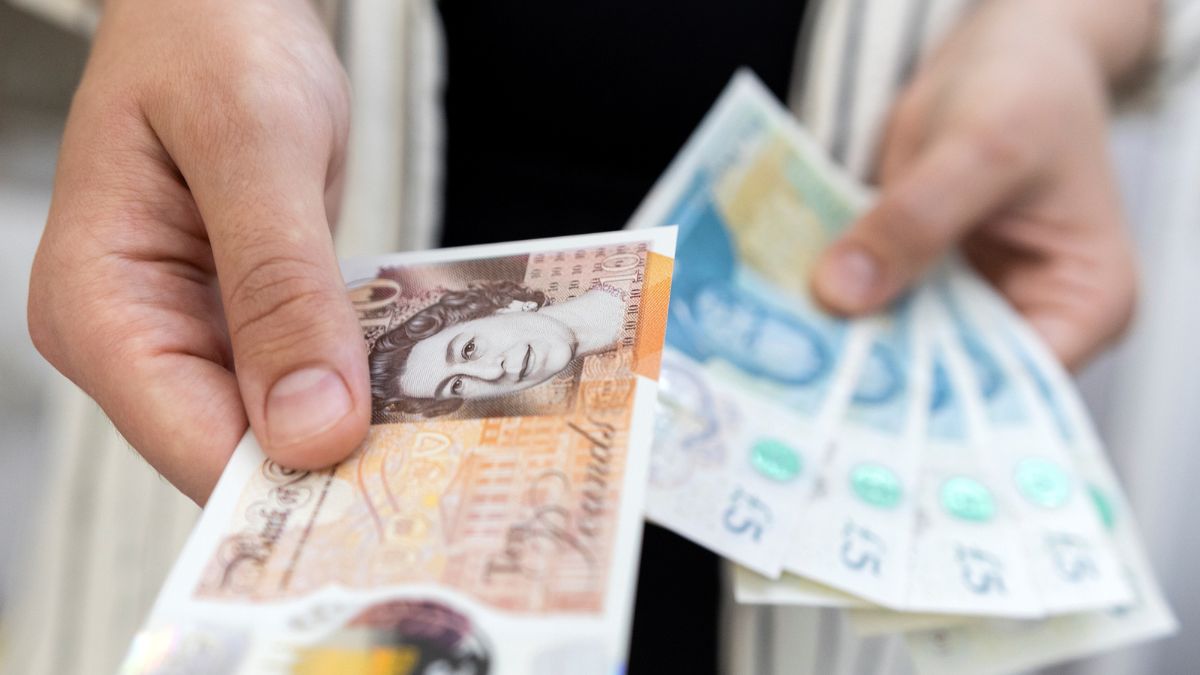India’s colonisation by the British Empire is in the spotlight again. A recent report by the rights group Oxfam has found that the United Kingdom withdrew $64.82 trillion from India, between 1765 and 1900, during colonialism.
More than half of this amount – $33.8 trillion – went to the UK’s richest 10 per cent. The report, titled Takers, not Makers, was released Monday (January 20). It comes days after Chris Martin the lead singer of Coldplay, the British rock band currently in India for the “Music of the Spheres” tour, apologised to the crowd in Mumbai on Saturday (January 18) for the British rule in India.
Thanking the audience for turning up in large numbers at the DY Patil Stadium in Navi Mumbai for the concert, Martin said, “Thank you for coming. Thank you for welcoming us even though we are from Great Britain. Thank you for forgiving all the bad things Great Britain has done and welcoming us to your home.”
The clip from the concert has since gone viral, with many social media users appreciating the gesture.
As British colonialism returns to the news, let’s take a look at what the Oxfam report has revealed.
Colonialism legacy: Britons exploit India’s wealth
Oxfam’s latest global inequity report published on the first day of the World Economic Forum Annual Meeting has made some startling revelations.
Based on many studies and research papers, Oxfam put a solid number to the wealth India lost to Britain’s colonialism.
“Legacies of inequality and pathologies of plunder, pioneered during the time of historical colonialism, continue to shape modern lives,” the news agency PTI quoted the report as saying.
“This has created a deeply unequal world, a world torn apart by division based on racism, a world that continues to systematically extract wealth from the Global South to primarily benefit the richest people in the Global North,” it added.
Between 1765 and 1900, a large part of India’s extracted wealth – over $33 trillion – went into the hands of the richest 10 per cent of Britons.
“This would be enough to carpet the surface area of London in British pound 50 notes almost four times over,” it said.
Today, a significant number of affluent people in the UK can trace their family wealth to colonialism and slavery, particularly the compensation given to rich enslavers when slavery was abolished, the Oxfam report said.
After the UK’s richest 10 per cent, the newly emergent middle class greatly benefited from the over 100-year colonialism. While the former received 52 per cent of India’s wealth, the middle class got 32 per cent.
Hampering India’s growth
The Oxfam report laid the blame on British colonialism for hurting India’s industrial output.
In 1750, the Indian subcontinent accounted for 25 per cent of global industrial output. This plummeted to a mere 2 per cent by 1900.
As per the report, Britain’s stringent protectionist measures against Asian textiles suppressed India’s industrial growth potential.
ALSO READ: Why does UK fear formally apologising for its colonial past?
Deaths, diseases due to colonialism
Citing studies, the Oxfam report mentioned that 59 million (5.9 crore) excess deaths were reported in India during British rule between 1891 and 1920.
It also talked about the 1943 Bengal famine, which is estimated to have killed three million (30 lakh) people in what is presently India and Bangladesh.
The report attributed the famine to restrictions on grain import during World War II, along with racist thinking.
The increased rates of obesity and type 2 diabetes among this population are due to metabolic adaptations to repeated periods of starvation during the British colonial rule, Oxfam said.
Colonialism’s impact on modern world
The global inequity report has underlined how colonialism has shaped today’s world, where the Global North continues to hold sway over the South.
The World Trade Organization (WTO)’s alleged failure to address the interests of the Global South has advantaged northern countries and corporations in the Global North.
The Oxfam report also claimed that the World Bank and many European development finance institutes, in collaboration with private capital and investment funds in the Global North, are endorsing privatisation and financialisation of public services in the Global South.
It claims that the modern multinational corporation is the creation of colonialism. “In the modern day, multinational corporations [MNCs], often occupying monopoly or near-monopoly positions, continue to exploit workers in the Global South, particularly women workers, on behalf of rich shareholders primarily based in the Global North,” the report said.
Large MNCs dominate global supply chains, benefiting from cheap labour and the ongoing extraction of resources from the Global South. These corporations bag most of the profits, fuelling dependence, exploitation and control through economic means, the report alleged.
With inputs from agencies
)